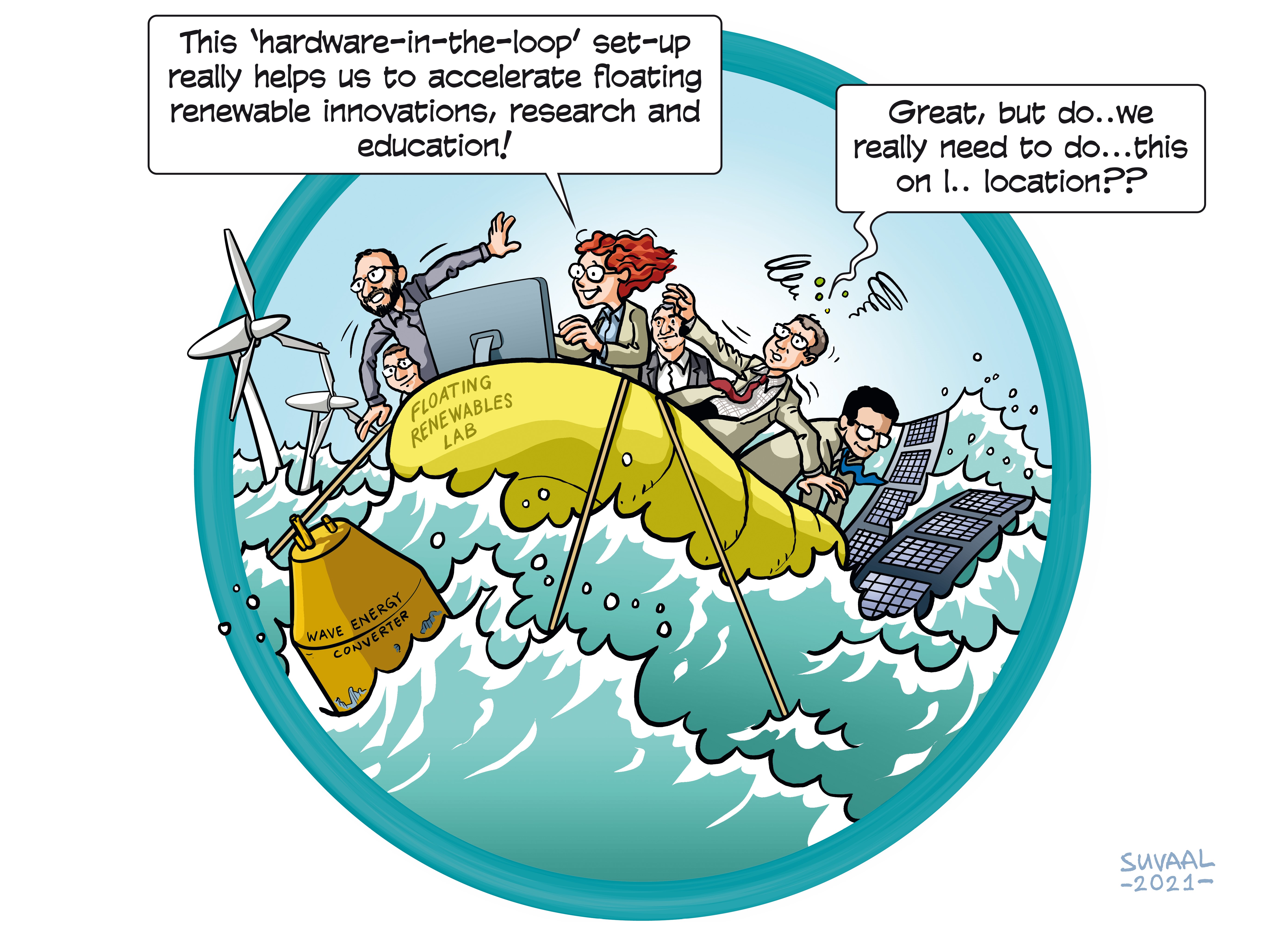Floating Renewables Lab
Research Themes: Energy, Software tech & Intelligent systems, Water & Maritime

Summary of the project
The potential for capturing renewable energy at sea is huge. There is plenty of space available. Floating energy devices – wind turbines, solar panels, wave energy convertors – are key enablers to harness renewable energy in deep sea. However, they combine many different research disciplines that need to be addressed in a coupled way to efficiently design and engineer the next-generation of floating offshore renewable energy systems. The Floating Renewables Lab brings together unique facilities and researchers in different fields to achieve this goal. A number of facilities will be connected virtually using a so-called ‘hardware-in-the-loop’ set-up. This bridges physical experiment with numerical modelling to emulate, for example, wave loads in a wind tunnel or wind loads in a wave tank. Complex aerodynamics, floater stability, sea-keeping system, and even storage and transportation of energy are interesting challenges that can be addressed at the Floating Renewables Lab. Through the combination of these facilities and expertise, the engaged Principle Investigators aim to accelerate floating renewable innovations, research and education. This will help develop new technologies that are critically needed to establish a zero carbon-emission economy worldwide.
What's next?
The first step is to virtually connect and upgrade all the facilities that play a role in developing floating renewable energy at TU Delft. The next steps are to build new facilities – including an extension to full scale measurements at sea.
Contribution to the Energy transition?
Offshore renewable energy harnessed by wind turbines, solar panels, and wave capturing devices offer great potential. However, eighty percent of our oceans are too deep to economically mount these devices on the seabed. A solution is to place them on floating support structures. The beauty of making all these devices float is that they can also be located much further out the coast. Additionally, they can also be used to convert renewable energy into an alternative energy carrier – such as H2. Floating offshore renewables will thus be a key enabler to make Europe climate neutral by 2050.
dr.ir. Axelle Viré
Prof.Dr. Ken Gavin
Friso Lippmann MSc
prof.dr.ir. Jan-Willem van Wingerden
dr. Carey Walters
prof.dr. Andrei Metrikine
dr.ir. Henk den Besten
dr.-Ing. Sebastian Schreier
dr. Maxim Segeren
Faculties involved
- AE
- 3ME
- CiTG
- AS